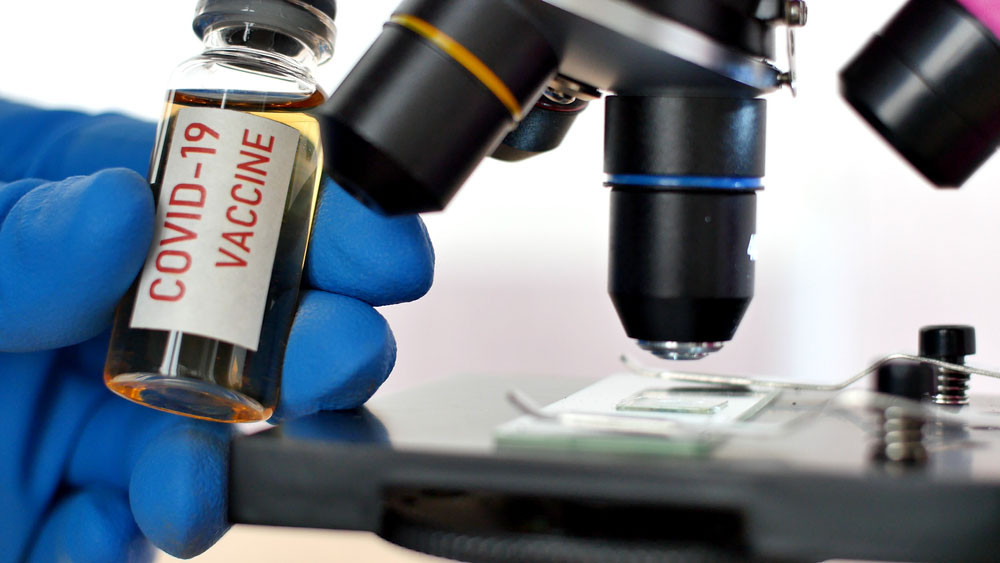Popular Reads
Top Results
Can't find what you're looking for?
View all search resultsPopular Reads
Top Results
Can't find what you're looking for?
View all search resultsEfficacy and safety first: Experts urge government not to put vaccines on pedestal
Change text size
Gift Premium Articles
to Anyone
I
n a country battered by the COVID-19 pandemic, both in terms of economics and public health, the government appears to be pinning its hopes on vaccine development, as new cases and deaths continue to soar in what experts have deemed as a never-ending first wave.
In a statement on Wednesday to express President Joko "Jokowi" Widodo's condolences on the deaths of 100 doctors from COVID-19, presidential spokesperson Fadjroel Rachman ended it by pointing to the government strategy of securing potential vaccines.
That includes, Fadjroel said, "looking for vaccines produced by any parties in the world; research and production collaboration between [state company] Biofarma, universities and local and foreign institutions; and the Merah-Putih vaccine research by Eijkman Institute for Molecular Biology."
The government says it has so far secured 30 million doses of potential COVID-19 vaccines by the end of this year, in addition to between 290 million and 340 million doses by next year, following state-owned companies’ agreements with China’s Sinovac Biotech, and the United Arab Emirates' Group 42 (G42) Healthcare.
Read also: Vaccines won't bring back normal life at once: Experts
"As a note, the vaccines developed today for COVID-19 [is for an immunity that lasts] six months to two years. It's not a vaccine shot [for] a lifetime [protection]," said State-Owned Enterprises Minister Erick Thohir in a meeting last week with the House of Representatives.
Health Minister Terawan Agus Putranto told the meeting that this meant the vaccine could possibly have to be injected once every six months, or one, or two years.
But experts have expressed caution about this estimate, wondering where it came from given that the two potential vaccines are still in phase III clinical human trials, which would determine the vaccines' efficacy and safety.
Indonesia is rolling out the trials for Sinovac's CoronaVac on 1,620 people along with several other countries, while G42 is carrying out trials in its home country on 45,000 participants of 85 ethnicities.
However, determining how long immunity resulting from vaccination will last requires not only clinical trial results, but also post-use surveillance after the vaccination program is rolled out next year, said Indonesian Institute of Sciences (LIPI) biotechnology researcher Wien Kusharyoto.
“No matter what, we still have to monitor, even after the vaccination is rolled out, the efficacy and the impacts among those already vaccinated. It's too early to say that it will last six months to two years," he said.
Experts have urged the government not to put potential vaccines on a pedestal, saying that whether it can truly rely on the vaccines will depend on their eventual efficacy and safety to be shown in the results of the trials that are still under way, and the government should rather prepare for the "worst-case scenario".
The efficacy threshold would be 50 percent, though ideally it should be around 70 percent, said independent molecular biologist Ahmad Utomo, adding that past vaccine development had shown that failures were not uncommon.
Lower than 50 percent, then vaccines would be out of the question, he said. If it hovered just above it then the government should reconsider whether putting in so much money into the vaccination program would be as effective as if the money was to be used on improving public health.
This means scaling up tests, enhancing contact tracing, providing financial assistance to those in isolation and improving treatment, he said.
"The government should look into which of these will be most cost-effective," Ahmad said.
Read also: Grim picture as Indonesia enters sixth month of COVID-19 outbreak
Both Terawan and Erick have said that the vaccination program could possibly put a strain on the state budget if it were to be made free for all.
Erick has suggested those who can afford it pay for it themselves, with current estimated costs ranging between US$25 and $30, as the government expects to cover some 93 million Social Security Agency (BPJS) beneficiaries in a vaccination program expected to start next year.
But with the race to find vaccines, the trailing economic and political interests, and the government having secured hundreds of millions of doses, experts have raised concerns that these will all affect decisions by authorities.
Wien of LIPI expressed the hope the Food and Drug Monitoring Agency (BPOM) would remain independent from all sorts of intervention in evaluating clinical trial results and issuing permits, otherwise public health would be at stake.
"If there are undesired effects [from the vaccines], there won't be trust among the people; this will put the vaccination program itself at risk and will automatically affect economic recovery efforts too," he said.
BPOM head Penny Lukito hoped the trials would be successful, pointing to the fact that phase III human trials would not start if phase I and II trials were a failure.
"The clinical trials we are on now are the phase III trials; this means that the phase I and II trials involved humans and have succeeded,” she told a press briefing on Wednesday. “The phase III is not about whether [the vaccine is] a failure or not, but about gathering more data [on its efficacy and safety].”










